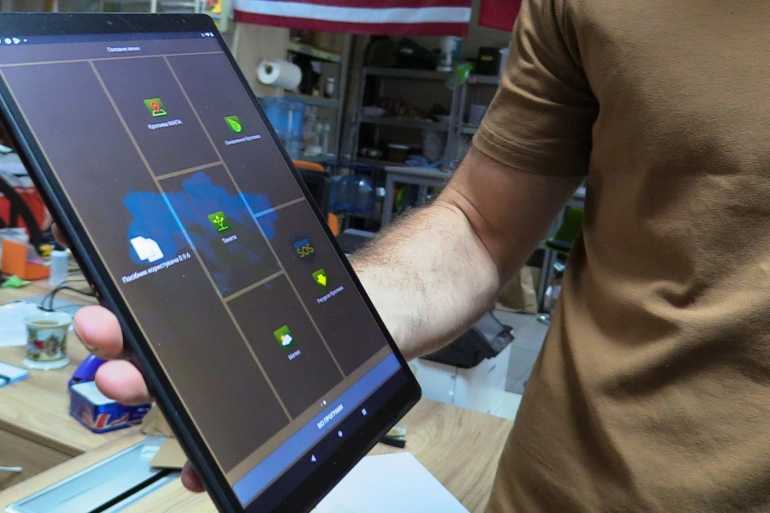How Ukraine turns cheap tablets into lethal weapons

Collected Image
Years before Russia invaded Ukraine, Oleksiy Savchenko helped develop one of the most lethal and inexpensive weapons now used by thousands of Ukrainian service members. In 2014, he was among the protesters whose months-long rallies in Kyiv ultimately removed pro-Russian President Viktor Yanukovych.
In revenge, Moscow annexed Crimea and stoked a separatist war in Ukraine’s southeast. This led Savchenko, together with like-minded activists, to start a non-governmental organisation called Army SOS.
The group raised money to procure flak jackets and other military gear for former protesters who volunteered to fight the separatists despite being under-equipped and barely trained.
And as the group delivered the gear to the front line, the volunteers and service members asked for something they needed badly. “Guys, give us maps, we need maps, we only have Soviet ones from the 1980s. Where there used to be a field is now a village or an apartment building,” Savchenko recalled them saying.
But instead of printing thousands of pages, Army SOS went for a tech solution. They asked a group of software developers in Kyiv to install satellite maps and Ukrainian military data on tablets and smartphones.
According to a Ukrainian service member who responded to the novelty in 2014, troops started seeing their surroundings better, and the tools allowed them to correct artillery more clearly and precisely.
More suggestions were passed on. The Soviet-era way of guiding fire requires manual data entry and the use of artillery tables for calculations that take up to 15 minutes. But what Army SOS and the developers came up with changed the entire system.
Named Kropiva (nettle), the software is part of a series of hi-tech equipment and weaponry that has helped to transform the Ukrainian military from a demoralised underdog to a serious force of resistance.
Kropiva “is an example of a private initiative and an effective use of civilian systems in the military,” Pavel Luzin, a Russia-based defence analyst with the Jamestown Foundation, a think tank in Washington, DC, told Al Jazeera.
In revenge, Moscow annexed Crimea and stoked a separatist war in Ukraine’s southeast. This led Savchenko, together with like-minded activists, to start a non-governmental organisation called Army SOS.
The group raised money to procure flak jackets and other military gear for former protesters who volunteered to fight the separatists despite being under-equipped and barely trained.
And as the group delivered the gear to the front line, the volunteers and service members asked for something they needed badly. “Guys, give us maps, we need maps, we only have Soviet ones from the 1980s. Where there used to be a field is now a village or an apartment building,” Savchenko recalled them saying.
But instead of printing thousands of pages, Army SOS went for a tech solution. They asked a group of software developers in Kyiv to install satellite maps and Ukrainian military data on tablets and smartphones.
According to a Ukrainian service member who responded to the novelty in 2014, troops started seeing their surroundings better, and the tools allowed them to correct artillery more clearly and precisely.
More suggestions were passed on. The Soviet-era way of guiding fire requires manual data entry and the use of artillery tables for calculations that take up to 15 minutes. But what Army SOS and the developers came up with changed the entire system.
Named Kropiva (nettle), the software is part of a series of hi-tech equipment and weaponry that has helped to transform the Ukrainian military from a demoralised underdog to a serious force of resistance.
Kropiva “is an example of a private initiative and an effective use of civilian systems in the military,” Pavel Luzin, a Russia-based defence analyst with the Jamestown Foundation, a think tank in Washington, DC, told Al Jazeera.
Source: https://www.aljazeera.com
Tags :
Previous Story
- Russia to pull out of International Space Station
- Russia moves to take control of Sakhalin-2 oil...
- Russia fails to pay debt but denies default
- With bond deadlines looming, Russia days away from...
- Goodbye Golden Arches: Rebranded McDonald's to reopen in...
- Climate change: Ukraine war prompts fossil fuel 'gold...
- Russian gas firm Gazprom to cut some supply...
- Oil bull run extends as EU agrees to...